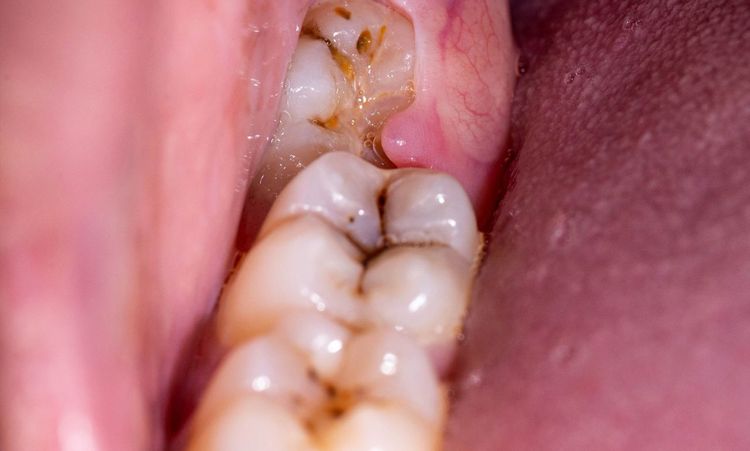We all want to improve ourselves. You may have tried drinking more water or exercising regularly. You start with enthusiasm but often quit before the habit sticks. Many believe habits form in just 21 days. This timeline actually varies greatly from person to person. Some habits might become second nature in a week. Others could take months to truly feel natural. This article explores what science says about habit formation timeframes. We'll also share practical strategies to help your new habits stick for good.
What Is a Habit?
A habit is a behavior that becomes automatic through repetition. You perform habits with minimal conscious thought or effort. Think about brushing your teeth each morning. You likely don't debate whether to do it. The action happens almost on autopilot as part of your routine. Habits can be beneficial, neutral, or harmful to our wellbeing. Your morning cup of coffee represents a neutral habit. Daily exercise counts as a positive habit. Checking social media every five minutes might qualify as a negative one.
Our brains love habits because they save mental energy. Once a behavior becomes habitual, your brain doesn't need to work as hard. This efficiency explains why habits can be difficult to change. Your neural pathways have essentially created shortcuts for familiar behaviors. Breaking or forming habits requires creating new neural connections. This process takes time and consistent effort before the new behavior feels natural.
How Long Does It Take to Build a New Habit
The popular 21-day rule for habit formation oversimplifies a complex process. This myth originated from a self-help book, not scientific research. A more accurate answer comes from a study by Phillippa Lally at University College London. Her research tracked 96 participants over a 12-week period. The subjects chose one new health-related habit to adopt. They reported daily on their progress and how automatic the behavior felt.
Lally's findings revealed surprising variation in habit formation times. The average time was 66 days for a new habit to feel automatic. Some simpler habits formed in as little as 18 days. More complex behaviors took nearly the full 12 weeks or longer. One participant needed 254 days before their chosen habit felt truly natural. The study concluded that habit formation depends on several key factors. The complexity of the behavior greatly influences timing. Your personality and environment also play significant roles in the process.
Anastasia Buyalskaya, a behavioral economist, confirms these findings in her research. She notes that simple habits like drinking water with lunch form faster than complex ones. Exercise routines or meditation practices typically require more time to become automatic. Your motivation levels and the behavior's alignment with your values matter tremendously. Habit formation works best when the new behavior fits naturally into your existing routine.
Benefits of Forming Healthy Habits
Healthy habits transform multiple aspects of life through consistent small actions. Regular exercise boosts energy levels and improves mental health substantially. This habit strengthens your heart, builds muscle, and enhances mood through endorphin release. Many exercisers report better sleep quality and reduced stress levels too.
Nutritious eating habits support overall health and disease prevention. People who consistently eat well often maintain healthier weights naturally. Their immune systems typically function better. They also experience more stable energy throughout their days. These benefits accumulate over time without requiring constant thought or willpower.
Good habits also save precious mental energy for important decisions. When positive behaviors become automatic, you don't waste brainpower on routine choices. This mental freedom allows greater focus on creative thinking and problem-solving. Your productivity improves as healthy routines handle life's basic maintenance tasks. The psychological benefit of reduced decision fatigue shouldn't be underestimated.
Positive habits contribute significantly to long-term goal achievement. Small, consistent actions compound dramatically over time. Each workout might seem insignificant, but a year of regular exercise transforms your fitness. The same principle applies to saving money, learning skills, or building relationships. Habits create the foundation for lasting success in nearly any endeavor.
4 Tips for Creating (and Maintaining) New Habits
1. Lean Into Repetition
Repetition forms the cornerstone of successful habit building. Your brain creates stronger neural pathways with each repetition of a behavior. Try performing your new habit at the same time each day. This consistency helps your brain form associations with specific times or contexts. Morning meditation works better when done right after waking up every day. The time connection strengthens the habit loop in your brain.
Environment plays a crucial role in supporting repetition. Set up your surroundings to make the habit easier to perform. Place your workout clothes beside your bed if morning exercise is your goal. Keep a water bottle on your desk to encourage regular hydration. These environmental cues remind you to perform the habit consistently. They reduce friction that might otherwise prevent repetition.
Track your habit streak to harness the power of momentum. Many people find visual records highly motivating. A simple calendar where you mark completed days works surprisingly well. Apps designed for habit tracking offer another effective option. Seeing your progress creates a psychological commitment to maintain your streak. This motivation helps power through days when your enthusiasm naturally wanes.
2. Have Fun
Enjoyment dramatically increases your chances of maintaining a new habit. Find ways to make even mundane habits more pleasant or rewarding. Listen to favorite podcasts during workout sessions. Turn cleaning into a dance party with upbeat music. These small adjustments transform chores into activities you might actually look forward to. The positive associations help cement the habit more quickly.
Social connections can add fun to habit formation. Join a walking group if regular exercise is your goal. Start a cooking club if healthy eating habits are your focus. Sharing the experience with others adds accountability and enjoyment. The social rewards often provide motivation when the habit itself feels challenging. Group settings also normalize the behavior, reinforcing its importance.
Reward systems work effectively when building less enjoyable habits. Give yourself small, immediate rewards after completing the desired behavior. A few minutes of guilt-free social media might follow completing your study session. A relaxing bath could reward meal prepping for the week. These rewards create positive associations with the habit. Your brain begins to anticipate the pleasant outcome, increasing motivation.
3. Make It Easy to Commit
Lowering barriers to entry significantly improves habit adoption success rates. Start incredibly small with any new habit. Begin with just five minutes of exercise rather than committing to hour-long workouts. This approach builds confidence through consistent wins. The habit can grow naturally once the basic behavior pattern establishes itself. Many people find they naturally extend the time once they've started.
Preparation removes common obstacles to habit performance. Prepare workout clothes the night before morning exercise. Pack healthy lunches ahead of busy workdays. Stock your pantry with nutritious snacks instead of processed options. These preparations eliminate decision points where willpower might fail. They create an environment where the desired behavior becomes the path of least resistance.
If-then statements help establish clear triggers for your habit. "If I finish breakfast, then I'll meditate for five minutes." This mental programming connects an existing behavior with your new habit. The trigger becomes an automatic cue for the desired action. Create specific if-then plans for different scenarios. "If I can't walk outside due to weather, then I'll follow an indoor workout video." These contingency plans prevent disruptions from derailing your progress.
4. Focus on Getting Started Instead of the End Result
The beginning of any habit often presents the greatest psychological resistance. Focus your energy on simply starting rather than completing the entire behavior. Tell yourself you'll exercise for just two minutes. Read just one page of your book. These tiny commitments overcome initial reluctance. Once started, you'll likely continue beyond your minimal goal. This approach recognizes that beginning often represents the hardest part.
Identity-based motivation proves more powerful than outcome-focused thinking. Think "I am someone who exercises regularly" rather than "I need to lose weight." This identity shift changes your fundamental relationship with the habit. The behavior becomes an expression of who you are rather than something you force yourself to do. Your actions naturally align with your self-perception over time.
Celebrate small wins throughout your habit journey. Acknowledge each day you perform your new habit, regardless of duration or quality. Recognize when you overcome obstacles to maintain consistency. These celebrations reinforce the behavior and build confidence. Progress happens through incremental improvements rather than dramatic transformations. Your brain responds positively to recognition of these small but significant steps.
How to Overcome Common Challenges in Habit Development
Consistency problems plague most habit-building attempts. Life inevitably throws disruptions into your routine. Prepare flexible alternatives for days when your normal schedule changes. A shorter workout at home can replace your gym session. Five minutes of meditation maintains the habit when you lack time for twenty. These adaptations preserve the habit's continuity during challenging periods. Consistency matters more than perfection.
Motivation naturally fluctuates throughout any habit journey. Expect and plan for these motivation dips. Connect your habit to deeper personal values that sustain interest beyond initial excitement. Create environmental supports that make the habit easier when motivation wanes. External accountability through friends or tracking apps helps during low-motivation phases. Remember that discipline ultimately matters more than motivation for long-term success.
Impatience derails many habit-formation attempts. We expect rapid results in our instant-gratification culture. Understand that meaningful habits develop gradually over weeks or months. Shift focus from outcomes to the process itself. Appreciate small improvements rather than fixating on end goals. This patience allows the natural habit-formation process to unfold. The compound effect of consistent small actions eventually produces remarkable results.
Social environments significantly impact habit success or failure. Unsupportive friends or family can undermine your best intentions. Communicate your goals clearly to important people in your life. Request specific support rather than general encouragement. Find communities that share your habit goals online or locally. These social connections provide both practical advice and emotional support. The right environment dramatically increases your chances of habit-building success.
Routines vs. Habits
Routines and habits share similarities but differ in fundamental ways. Routines consist of deliberate behavior sequences that require conscious attention. Habits operate automatically with minimal thought or effort. Your morning skincare routine may demand focus on each step. Brushing your teeth likely happens with little conscious thought. This distinction helps explain why some behaviors never seem to become truly effortless.
Routines often serve as containers for developing multiple habits. A morning routine might include meditation, hydration, and exercise. Each component eventually becomes habitual through consistent repetition. The routine structure provides necessary scaffolding during the habit formation process. It creates reliable cues and contexts for the desired behaviors. This organization significantly improves your chances of successful habit development.
Some behaviors benefit from remaining conscious routines rather than unconscious habits. Complex creative activities often fall into this category. Writing, painting, or strategic thinking may lose quality when performed mindlessly. Reserve your habit-building efforts for behaviors that truly benefit from automaticity. Accept that certain valuable activities will always require deliberate attention. This selective approach maximizes the benefits of both habits and routines in your life.
Conclusion
Building habits takes longer than the popular 21-day myth suggests. Research shows most habits require about two months to feel natural. Simple behaviors might form faster, while complex habits need more time. This timeline varies significantly between individuals and behaviors. Your personal circumstances and the habit's complexity influence the formation process. Patience and realistic expectations improve your chances of success.
Effective habit-building strategies focus on consistency rather than perfection. Start incredibly small to build momentum and confidence. Create environmental supports that make your desired behavior easier. Connect habits to your identity and deeper values for sustained motivation. Track your progress to harness the psychological power of streaks. Remember that tiny, consistent actions compound into significant changes over time.
The journey toward better habits ultimately transforms more than just your behaviors. It changes how you view yourself and your capabilities. Each successful habit builds confidence for tackling the next challenge. The discipline developed through habit formation transfers to other life areas. The compound effect of multiple small habits can completely reshape your health, productivity, and happiness. Start small, stay consistent, and watch your life transform one habit at a time.




